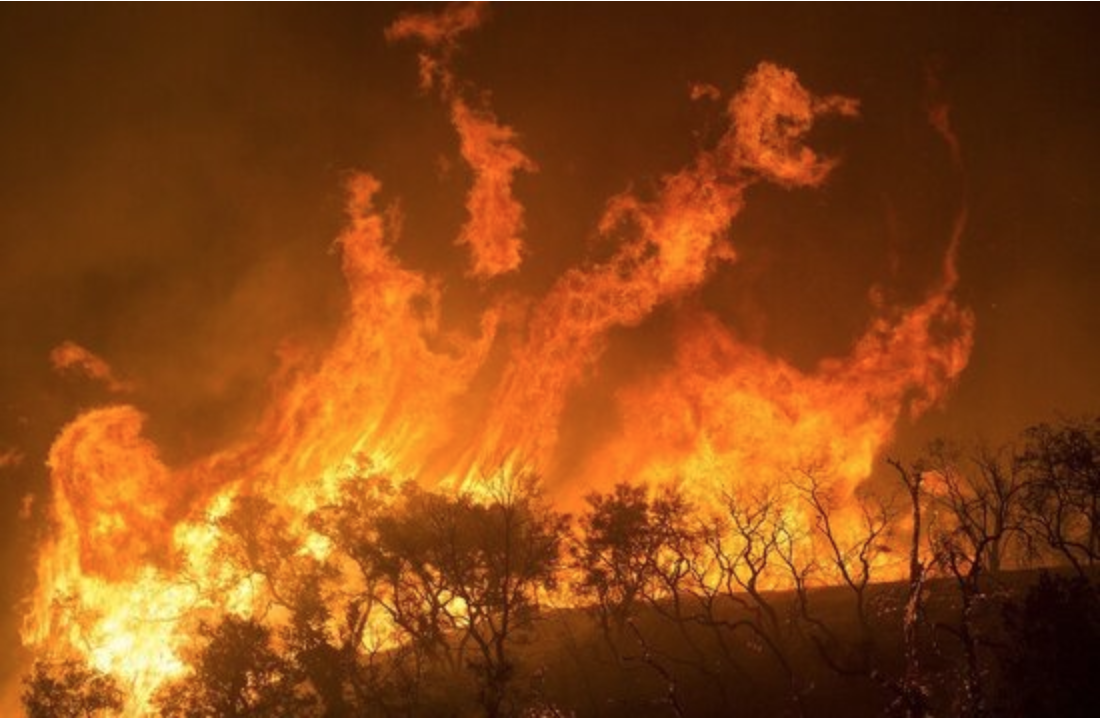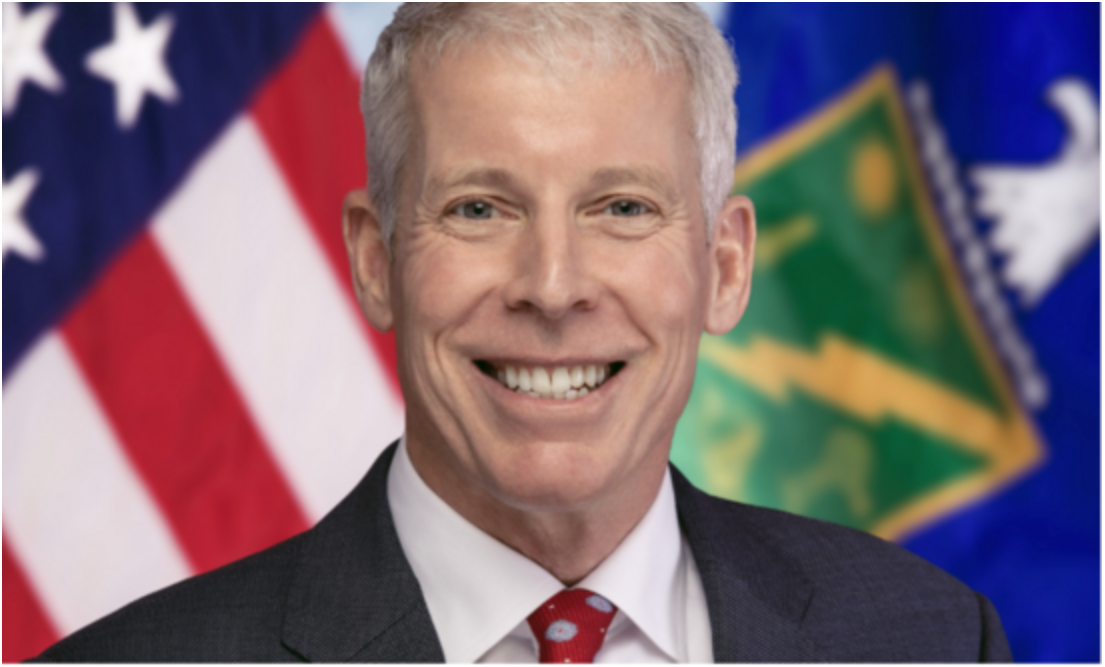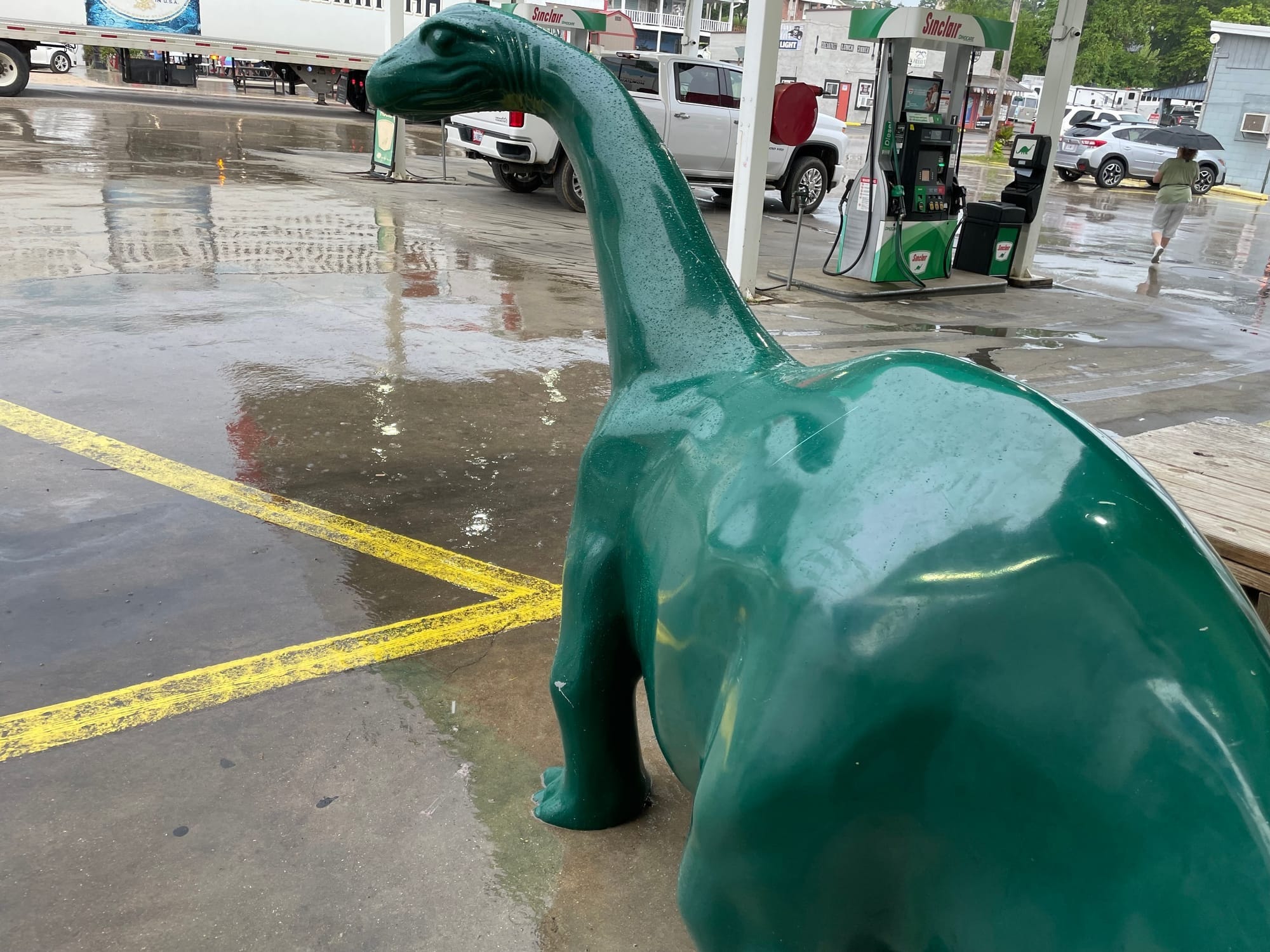Even readers of headlines-only are aware that Grifter-in-Chief Donald Trump is intent on rescinding as many as he can of the tens of billions of dollars the Inflation Reduction Act is investing in climate-friendly infrastructure, including green manufacturing and electricity systems. Word is that the $7,500 incentive for electric cars will be the first to go. Since that dismissal is to the liking of Elon Musk, who is probably pondering where best to put his desk and cot upstairs in the White House, anybody seriously thinking of buying an EV should probably do it before January 20.
In addition to the EV incentives, there’s widespread speculation that certain green projects not yet in the pipeline—subsidized or fully federally funded—will be axed as well.
And that’s just the beginning, no doubt. Kill projects, kill environmental regulations, kill whole agencies. Occupational Safety & Health Administration? Those guys are so annoying when you’re just trying to get work done. The Food & Drug Administration? They should ease up. A 1% incidence of salmonella isn’t such a big deal. And the number of Thalidomide babies was teensy, so we don’t need peer-reviewed studies for drug approvals. Bureau of Ocean Energy Management? They should just let the five biggest U.S. oil companies divvy up offshore America (except not anywhere between the horizon and Mar-a-Lago).
Yes, indeed, in addition to what’s in store in economics, human rights, civil liberties, foreign policy, and democracy itself, there’s big, at least short-term trouble ahead for the environment and any serious, accelerated green transition in the United States. But I’ve had enough already of the plethora of “dark days ahead” commentary and analyses of the past two weeks. Not that these are all wrong. On the contrary. Grim outcomes are certainly possible with all the fallout from a four-year Trumpian retreat on climate. But there’s also already some built-in resistance to that retreat. I don’t just mean from starry-eyed dreamers, although there are some of those hanging about too.
For instance, at Energy News Network, Dan Haugen points to the potential for a collision between mayors and the new administration in an interview with Justin Bibb, chair of Climate Mayors, a bipartisan group of city leaders determined to keep climate on the agenda regardless of what the White House does.
“It’s going to be incumbent upon mayors, and also Republican governors and members of Congress who have seen the benefits of these investments, to make the business case to the Trump-Vance administration,” Bibb said. “I don’t want to cede our innovation in the EV sector to China. I don’t want to cede our innovation around green energy and renewables to Europe. We have to make the case … on why these investments are important for America’s national security and America’s economic competitiveness.”
Bibb said Exxon Mobil CEO Darren Woods has publicly urged Trump not to abandon U.S. leadership on climate change, and there are hopes that some prominent Republicans will press the president-elect in the same direction.
On the day after the election, Climate Mayors, America Is All In, and the U.S. Climate Alliance issued the following statement: “America’s climate-leading states, cities, Tribal nations, businesses, and institutions will not waver in our commitment to confronting the climate crisis, protecting our progress, and relentlessly pressing forward. No matter what, we’ll fight for the future Americans demand and deserve, where our communities, our health, our environment, and our economy all thrive. We will not turn back.”
Then there’s what author Jeremy Blecher talks about in a guest essay in The Guardian Thursday:
As Trump and Trumpism devastate the American political landscape, how can people counter this destructive juggernaut? For the past five years, I have been studying how people are actually implementing the elements of the Green New Deal through what has become a Green New Deal from Below. This framework, which ordinary people are already putting into practice, is an approach to organizing that can form a significant means for resisting and even overcoming the Trump agenda.
But there has also emerged a little-noticed wave of initiatives from community groups, unions, city and state governments, Indigenous American tribes and other non-federal actors designed to contribute to the core principle of the Green New Deal: to use the necessity for climate protection as a basis for creating good jobs and social justice. The US Representative Alexandria Ocasio-Cortez, who helped start the campaign for a Green New Deal, has called it “a Green New Deal from Below”.
My new book, The Green New Deal from Below: How Ordinary People Are Building a Just and Climate-Safe Economy, details more than a 100 such initiatives in over 40 states. Some of these initiatives use names like “The DeKalb Green New Deal” and “The Green New Deal for Education”; others don’t use the moniker but apply the same principles. Here are some examples. [...]
In Illinois, the Climate and Equitable Jobs Act, promoted by a broad coalition of labor and community groups, sets the state on a path to a carbon-free power sector by 2045 with the nation’s strongest labor and equity standards. The bill will slash emissions, create thousands of new clean energy union jobs, expand union apprenticeships for Black and Latino communities and increase energy efficiency for public schools. It also contains a transition program for families and communities currently reliant on jobs in the fossil fuel industry. Journalist Liza Featherstone has called the legislation a “miniature Green New Deal” for Illinois.
Local grassroots activism matters even when the ultimate problem is worldwide. Without such activism neither California, nor Colorado, nor Illinois, nor New York would have the generally far-sighted energy policies they have put in place. The same goes for dozens of cities. Of course, neither cities nor states will be able to do as much, as fast without the federal money that Trump and Musk would like to eliminate. But there’s still plenty they can do. Focused activists can get even better climate-related policies enacted in most of those 315 cities whose leaders are part of Climate Mayors. And there’s even more non-member cities where grassroots work may have to start from scratch. Still, every move toward a green future matters.
Important as they are, climate policies and funding at the state and local levels are no replacement for federal money, policies, and rules. As crucial as it is, local activism is no replacement for taking on the foot-draggers, delayers, and deceivers who grease a lot of elected officials’ pockets at the national level. As necessary as it is, working through the system has already proved itself inadequate for shaping climate policies that are truly a match for the increasingly dire scientific data. Getting that match is clearly going to require disruptive moves that entail more than blocking traffic.
—Meteor Blades
WEEKLY ECO-VIDEO

GREEN BRIEFS
From the U.S. Fish and Wildlife Service:
In response to declining giraffe populations caused by poaching, habitat loss and climate change , the U.S. Fish and Wildlife Service is proposing federal protections for several giraffe species. After reviewing the best available scientific and commercial information, the Service proposes listing all three subspecies of northern giraffe from west, central and east Africa as endangered under the Endangered Species Act. [...]
The primary threats to giraffes include human population growth; habitat loss, fragmentation and degradation due to urbanization; poaching; and impacts of drought from climate change that increase human-wildlife conflicts. Giraffes are protected under the Convention on International Trade in Endangered Species of Wild Fauna and Flora primarily because their populations are vulnerable to threats from habitat loss, illegal hunting, and the international trade of giraffe parts. While trade is not the primary cause of the decline of wild giraffe populations, trade may have an additive effect when combined with the main causes of habitat loss and poaching. Giraffes are valued for their hair, tails, and use in traditional medicine, but in recent years they have been increasingly targeted by hunters and poachers for bushmeat.
The population for the three subspecies of northern giraffe has declined approximately 77% since 1985, from 25,653 to 5,919 individuals, and the species has been extirpated from numerous countries in west Africa. Only 690 West African giraffes remain.
RESEARCH & STUDIES
Climate change and air pollution could risk 30 million lives annually by 2100. The study was conducted by lead author Andrea Pozzer of the Max Planck Institute (link to study), Mortality attributable to air pollution and extreme temperatures is a major concern, and it is expected to heighten in the future. The international research team found that, under the most probable projection, annual mortality rates linked to air pollution and extreme temperatures could reach 30 million by the end of the century. That’s four times the current level.
Report: Fewer New Miles: The U.S. Transmission Grid in the 2020s by Americans for a Clean Energy Grid. While the need for more transmission capacity is clear, utilities are not responding. Construction of new high-voltage transmission has slowed to a trickle over the past decade. Despite this decline in new construction, annual transmission spending has hit an all-time high — more than $25 billion per year — with 90% of this driven by reliability upgrades and the replacement of aging equipment.
HALF A DOZEN OTHER THINGS TO READ (OR LISTEN TO)


Trump Energy Secretary Pick Chris Wright Calls Climate Crisis Denier Bjorn Lomborg a ‘Friend’ by Geoff Dembicki at DeSmog. During a podcast interview from 2020, Wright referred to Lomborg’s book as “fantastic,” and earlier this year described the Danish climate solutions denier as a “friend” on LinkedIn. Lomborg writes an internationally syndicated column about climate change that is filled with mischaracterizations of climate science, argues Bob Ward of the Grantham Research Institute on Climate Change and the Environment at the London School of Economics. Lomborg regularly appears in mainstream media outlets like The Wall Street Journal and The New York Times and was featured in September on the HBO show Real Time with Bill Maher. “By far, Lomborg is the world’s most influential climate change denier,” Ward told DeSmog. “And Chris Wright is in denial about the fact that the product he produces [oil and gas] is causing death and destruction around the world.” Ward said it’s alarming that Wright – who has also voiced appreciation for the work of climate crisis deniers Matt Ridley and Michael Shellenberger – will hold one of the most important cabinet positions in the federal government as the deadly impacts of climate change are accelerating. “People’s lives are going to be destroyed. Americans are going to suffer as a result,” Ward claimed.
Tesla’s Bid to Pull Up the EV Ladder by David Dayen at The American Prospect. The $7,500 federal electric-vehicle rebate was always likely to be the most endangered of the Biden administration’s clean-energy investments. Tax breaks for building factories at least creates jobs and, perhaps more important, corporate stakeholders. But the EV rebates benefit consumers whose lifestyle choices are coded as liberal. States that didn’t vote for Trump lead the way on EV adoption. This fits with the “punish my enemies” imperative of the Trump administration. But there was a hitch here: Elon Musk decided to become Donald Trump’s biggest and wealthiest fan. For a moment, you could see the EV rebates sticking around. After all, nobody has thrived more off those rebates, including the ones in place before the Inflation Reduction Act, than Tesla. Unfortunately, that is not the logic of the would-be monopolist. You look around at you and your competition and wonder who would be hurt the most by a government action, and if it’s everybody else, you endorse it. That’s the logic behind Tesla’s apparent support for eliminating the rebate: essentially pulling up the ladder after climbing it themselves.
Related: Elon Musk Is Getting What He Wants. It’s official: Trump is out to kill the EV tax credit by Robinson Meyer at Heatmap.


Trust in scientists hasn’t recovered from COVID. Some humility could help. Intellectual humility could win back much-needed trust in science, study finds by Beth Mole at Ars Technica. Scientists could win back trust lost during the COVID-19 pandemic if they just showed a little intellectual humility, according to a study published Monday in Nature Human Behavior. It's no secret that scientists—and science generally—took a hit during the health crisis. Public confidence in scientists fell from 87 percent in April 2000 to a low of 73 percent in October 2023, according to survey data from the Pew Research Center. And the latest Pew data released last week suggests it will be an uphill battle to regain what was lost, with confidence in scientists only rebounding three percentage points, to 76 percent in a poll from October. The new study in Nature Human Behavior may guide the way forward, though. The study encompasses five smaller studies probing the perceptions of scientists' trustworthiness, which previous research has linked to willingness to follow research-based recommendations.
Climate Finance Is Failing Farmers Punished by Global Warming. Less than 3% of all public climate finance goes to food systems, despite global warming’s catastrophic impact on agriculture by Agnieszka de Sousa at Bloomberg Green. Small family farmers grow more than a third of the world’s food and up to 80% in regions like Asia and Africa. Yet just 14% of the $9.1 billion in international public climate finance for agriculture and land use was targeted at activities most relevant to them, according to an analysis by Climate Focus. That picture becomes even more distorted when you consider that less than 3% of all public climate finance goes into food systems, even though they make up about a third of the global greenhouse gas emissions. “The dollars aren’t big enough; the dollars aren’t catalytic enough,” said Sara Farley, vice president of the global food portfolio at the Rockefeller Foundation. “Food is not an elected add-on for climate, future proofing our planet. It is a requisite.”
China’s Soaring Emissions Are Upending Climate Politics by Brad Plumer and Mira Rojanasakul at The New York Times. The United States has still pumped more total planet-warming pollution into the atmosphere since the 19th century, in part because the country has been burning coal, oil and natural gas for longer. But China is quickly catching up. China, for its part, has promised that its emissions will peak this decade and then start falling. The country is installing more wind turbines and solar panels than all other nations combined and leads the world in electric vehicle sales. But even with China’s shift to low-carbon energy, the Carbon Brief analysis found, the nation’s historical emissions are projected to approach those of the United States in the coming years.


Cities, states say they’ll need more help to replace millions of lead pipes by Alex Brown at Stateline. State officials are urging Congress to provide ongoing funding for the lead replacement effort. Local leaders say they’ll need lots of help to meet the deadline. And environmental advocates are calling on states to issue bonds or provide other financial support to water utilities. “It took us close to 100 years to get all of these lead service lines in the ground, and the EPA is asking us to get them out in 10 years,” said Tom Dobbins, CEO of the Association of Metropolitan Water Agencies, an advocacy group for publicly owned water systems. “The [Biden] administration grossly underestimated the cost. Obviously, if the federal government doesn’t provide the funding for this, the ratepayers will have to pay for this. That exacerbates certain communities’ affordability issues.” The new rule, issued by the U.S. Environmental Protection Agency in October, requires cities and water utilities to replace all lead service lines — the pipes that run from water mains to private residences under lawns and sidewalks. Because the lines extend under private property, some water system operators say the rule has created confusion over whether utilities or homeowners will be responsible for the replacement costs.
ECOPINION


What a Second Trump Administration Could Mean for Your Food by Scott Faber at Civil Eats. The likely scenarios: higher prices, less nutritious food, and an increased risk of pathogens in the food supply. And that’s not the half of it. First, food prices could increase. A lot. And this time, food inflation will be driven by food policy choices, not by the Covid-19 pandemic. After the role food prices played in the election, some might wonder why Trump would place tariffs on food imports, which could increase food prices if the costs are passed along to consumers. But that’s not all he might do. The Trump team might also reduce food assistance for poor people, as House Republicans have already proposed. [...] Second, the people who feed us could lose important workplace protections. The COVID-19 pandemic unmasked the harm food and farm workers face, but that might not stop the Trump team from weakening labor standards. Many of the people who feed us are not only at risk of being deported, they may also have fewer legal protections at work if industry lobbyists are placed in key positions at the Department of Labor and the Department of Agriculture. Even if Trump fails to deliver on promised deportations, food and farm workers will live and work in constant fear—and face increased harassment.
Why I’m not in Baku—and how to prevent further co-optation of UN climate summits by Allison Morrill Chatrchyan at the Bulletin of the Atomic Scientists. For the first time in nine years, I am not attending the annual United Nations Climate Change Conference of the Parties (COP29). This was a difficult decision. At recent COPs, I have helped organize the Cornell University delegation, and served as a Party negotiator for the small Caucasus nation of Armenia to help boost its capacity at the global climate negotiations. I will miss working with climate experts from all over the world, including fellow country negotiators in the “agriculture family,” to draft decisions on climate change, agriculture, and food security. In a moment of despair after the US election, I even bought a ticket to Baku, Azerbaijan, where the conference is taking place. I wanted to show that US researchers are still engaged. But ultimately, I decided I could not in good conscious support the global greenwashing of the climate change agenda by participating in a sham conference. [...] How is COP29 a sham and a disgrace, you may ask? Let me count the ways.
Dan Savage on blue America in the age of Trump. In this episode, David Roberts talks with activist, sex advice columnist, and progressive journalist Dan Savage about the legacy of “The Urban Archipelago,” a groundbreaking piece he commissioned and edited two decades ago in the wake of George W. Bush’s reelection, urging Democrats to embrace cities as their political base and future. We explore how NIMBY-captured Democratic city leadership has stifled urban potential — and why improving and growing cities isn’t just policy; it’s party building.


The Case For Ignoring Trump’s Daily Rage-Bait by Kate Aronoff at The New Republic. Responding to every stupid thing Trump does won’t help win the coming battles. Climate advocates in particular need deeper forms of reflection and engagement. The climate crisis is an overwhelmingly depressing subject. Choosing topics within that crisis to try to understand, write, and publish about a few times a week (i.e., doing my job) feels better than trying to reckon with it as a Cronenberg-esque mass of looming destruction. I enjoy this work and like to think that it can be helpful insofar as it informs or motivates. Responding to the news about climate change is not a strategy for reducing emissions, though. And responding to every new and terrible thing Trump says isn’t the way to defeat him, particularly given how little leverage Democrats will actually have over the next four years now that Republicans hold both houses of Congress. Reacting to announcements and actions designed to anger Trump’s political opponents shouldn’t distract from longer-term strategizing around how to build a political force that’s capable of beating the right-wing movement that brought him to power. There’s a particular risk that establishment Democrats who just lost the election may treat the frenzy over everything Trump does and says as an excuse to double down on their losing strategy: “Look how terrible he is! Vote for us next time or it’ll get worse.”
GOP Takes First Steps To Shut Down Climate Groups by Lois Parshley and Freddy Brewster at The Lever. In the preceding weeks, the House Energy and Commerce Committee’s report focused on the Inflation Reduction Act’s distribution of federal funding, offering a preview of how the new terrorism legislation could be wielded for political purposes. It also highlighted the kinds of organizations that could be targeted, including those that support clean-energy policies like committing investments to renewable energy, phasing out fossil fuel production and use, and expanding public land conservation. Criticizing the Biden administration’s environmental justice grants for marginalized groups historically inundated by pollution, the report says, “Enriching nonprofit organizations to spread radical, left-leaning ideology is an inappropriate use of taxpayer dollars.” The plan singles out specific groups that the committee says have pushed a “radical rush-to-green agenda,” including Rewiring America, a nonprofit working on electrification, and New York City-based environmental justice group WE ACT. It castigated, for example, a blog post on WE ACT’s website “criticizing ‘Republican gas stove culture wars,’ and House GOP Members’ ‘preformative [sic], out-of-touch agenda.’”
OTHER GREEN STUFF
• Climate change is encouraging unsanitary toilet practices among vulnerable communities










Comments
We want Uncharted Blue to be a welcoming and progressive space.
Before commenting, make sure you've read our Community Guidelines.